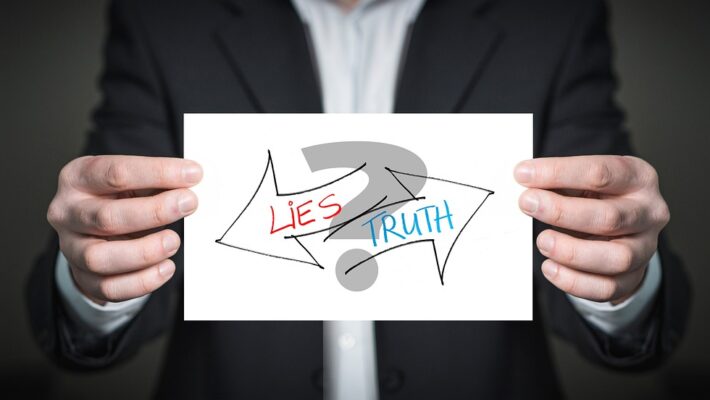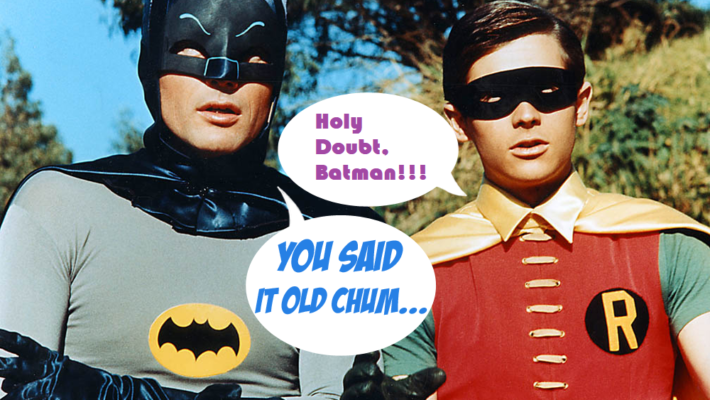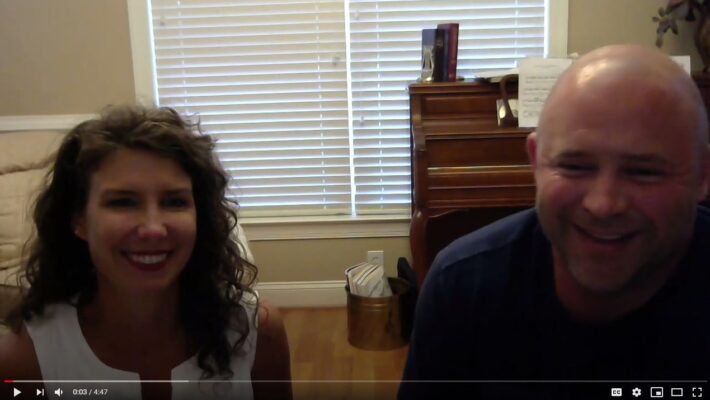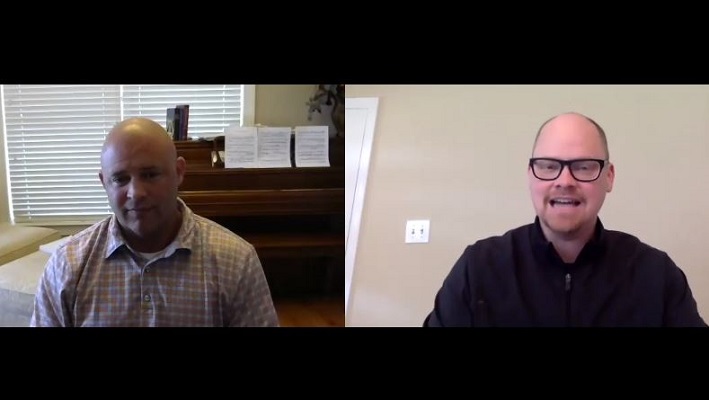What a post title, right? It is sort of like click-bait, isn’t it? Sorry about that. The truth is, the title is a reflection of my strong aggravation with how much we (all of us) are lied to each and every day. What makes matters worse, I believe many of us fail to realize this and fall for many of the lies unwittingly.
So what do I mean by “we are being lied to”? I think the best way for me to delve into this concern is to explain why it matters. Why should we care to realize that we are being lied to? I will sprinkle in some examples along the way of how we are lied to constantly and explain them as best I can. So here we go…
It matters that we are being lied to because when we do not realize it, we readily accept those lies as if they were true. Please notice that what gives the lies power, is not the mere fact that we are being lied to but that many times we are blind to it. When we are blind to it, we act on those lies, which is NOT GOOD! We begin living a lie, unknowingly. So my reasoning for this post might be summarized by stating that we need to be cognizant of this issue and learn to look out for it in our every day lives. Awareness is the key here. Without awareness, we are doomed to be manipulated and controlled by whoever or whatever attempts to mislead us.
Ads and News Media Lie to Us
Let’s take an easy example here: advertisements. What is the goal of an advertisement? It is to show me a product or service and convince me that I need to buy it. Now, there can be honest sales people out there that stick to factual information about what they have for sale and encourage consumers to decide if they really need it. However, there are many marketing entities that do not care if you need it or not. Their goal is to get you to buy it no matter what. When that is their agenda, they will stretch the truth and even outright lie if necessary. How do we know the difference between an honest marketing attempt and a manipulative salesperson? We can’t always be sure, but the big thing to remember here is that behind every advertisement is a person or entity that wants to (and often needs to) make money. We need to remind ourselves that it’s not an altruistic situation in which they purely want to do what is best for us. Awareness of this truth will help keep us focused on asking ourselves the right questions before making a decision to “buy what they are selling”.
Unfortunately, news media falls into the category of “sales” at this point in time. Each media outlet has a need to get you to listen to them, click on their links, and come back for more. Again, some are more honest than others, but they ALL have an agenda that is not purely for our (the consumers) benefit. We must remind ourselves of that and ask ourselves good questions when presented with something from someone in an advertisement or media. Do I really need what they are offering? Does this sound too good to be true? Does this sound to bad to be true (news media love to sell really bad news)? What are others saying about this information that is being presented here? How is this product or service going to benefit me? Am I being given information to sift through and make decisions for myself, or am I being led in a certain direction by someone? What does the source of this product or service stand to benefit if I partake of what they are presenting?
People Lie to Us
I could go on and on with that one example, but let’s look at another: people. Most of us interact with people every day. Some of it is in person, some over the phone, some via text, some on social media, and a host of other ways. Some of these people love us dearly. Some are just casual acquaintances. Some are coworkers and business associates. Some are just people we don’t know at all and pass on the street. But here’s the thing, THEY ALL LIE. Their words, their tone, their facial expression. Those are just a few ways for us to receive and believe something that is not true. It’s not all intentional, but it doesn’t have to be a lie on purpose to do damage. Some of the most sinister, penetrating lies come from those who don’t even know they are projecting a lie!
A lie from someone can be from direct verbal or written communication or it can be a simple facial expression. Have you ever had someone look at you a certain way and then you think something like “Oh no, my boss looks angry. I’m sure she’s mad at me. It must be because I messed that project up. Why do I always mess stuff up! I am so stupid!” The truth is likely that you are NOT stupid, but may have made a mistake. However, the look on that person’s face caused that lie to surface and take ahold in your mind. Make your own example out of this. Insert the look on your spouse’s face, or your child’s face, or someone else you are close to. Insert an email from someone that you cannot be sure of their tone, but find yourself assuming it is a negative one. These are all examples of how a lie can creep in and affect us. When we accept a lie as the truth, we respond emotionally and behaviorally in unhealthy ways. It starts with thoughts in our heads, usually negative towards ourselves. We can find ourselves in a downwards spiral of self-deprecation if we are not careful.
Don’t Get Angry, Just Get Awareness
I want to stress again the importance of awareness. We all have our own perspective, and we need to be open to being wrong. Maybe we are assuming a certain tone or message from someone that is not at all what they intended. Maybe we are right, and they DID intend it, but maybe they are just wrong. We need to know the truth and hold onto that, but we cannot even look for it if we don’t have a filter. If we fail to filter input from the world, we allow anything and everything to get in and affect us. Even with a filter, some bad will get through, but less of it. And as time passes, we can upgrade our filters with each experience to better keep out the bad lies and allow the good, truthful stuff to get in.
It’s a simple suggestion to start with, but not an easy one to carry out. It takes time and effort to develop the skill of being aware of the bombardment of falsehoods that surround us. There is no shortage of things that can communicate a lie, often easier than the truth. However, as we practice the skill (even though we do it imperfectly), we make progress towards noticing things that vie for our attention, discerning the message we are receiving from them, and deciding what is actually true.











